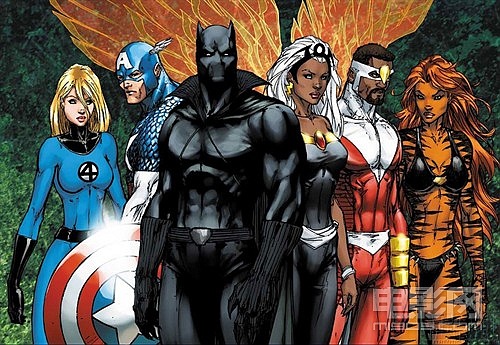不知从何时起超级英雄电影逐渐风靡全球影坛,成为新世纪好莱坞的赚钱机器。各样超级英雄续集的推出一度挽救了美国电影的上座率。那么好莱坞是否已经将超级英雄电影引向泛滥了呢?
由于每部超级英雄的电影在全球范围内大卖,导致接下来5年内将会有一堆超级英雄的电影上映。美国迪士尼公司、华纳兄弟影业、福克斯公司以及索尼影业争先恐后抢占超级英雄电影市场,共计有30部关于超级英雄的电影将要上映。
对导演们来说,超级英雄电影是最快的赚钱机器,对演员来说,这类电影亦是大展头角的保证。

They bring in the big bucks, provide multiple spinoffs and sequels and offset the general decline in cinema audiences in the US, but is Hollywood overdoing it when it comes to superheroes?
Over the next five years a remarkable 30 superhero movies are expected to be released by Disney, Warner Bros., Fox and Sony Pictures in a crush of fantasy power play. And when, last week, Kevin Feige, president of Marvel Studios, took to the stage at the historic El Capitan theatre on Hollywood Boulevard to discuss the studio’s slate of superhero films to 2019, he said there would be many more, “if there are years after 2019”.
The ambitious list includes The Black Panther and Captain Marvel, the first superhero films starring black and female leads respectively. They will join the Marvel “universe” of characters such as Iron Man, Captain America and Thor.
It’s hard to question the confidence of Marvel. Since it was bought in 2008 by Walt Disney for $4bn, it has generated $7bn by mining a catalogue of superhero characters developed over decades of comic book publishing. With each film introducing new characters with interconnecting plots, Feige reinforces his reputation as one of the shrewdest studio heads of his generation.
It was Feige who resurrected the career of Robert Downey Jr by casting him as Iron Man. He hired TV director Joss Whedon to make The Avengers, the third highest grossing film in history. He approved Thor and Guardians of the Galaxy and it is Feige who will probably sign off on Benedict Cumberbatch to play Dr Strange.
But Marvel is far from alone. Warner Bros., owner of the rights to DC Comics, has unveiled its own 10-movie slate of superhero films, including Batman v Superman: Dawn of Justice next year,Suicide Squad and Flash. Rupert Murdoch’s Fox has The Wolverine, the X-Men series and theFantastic Four. For the Hollywood studios, faced with declining theatre revenue, the superhero genre is considered a winning strategy.
Jeff Ayres, manager at New York’s famous Forbidden Planet comic bookstore, says it’s no mystery why Marvel’s film slate is dominant: it is derived from a generation of superheroes with complicated inner lives.
“They’re from the minds of Jack Kirby, Steve Ditko and Stan Lee – that’s why those characters are so durable. Marvel characters stand the test of time because they’re based on real human foibles. Unless they’re sent down from heaven like Thor, they always have one foot in reality.”
That is not always true of DC Comics heroes, Ayres continues: “It’s harder to identify with a billionaire who turns himself into something else or with Superman who gives himself problems to make himself more real.”
Character considerations aside, critical voices are starting to confess to a certain superhero fatigue. The respected critic, Todd VanDerWerff, noted last week that the seemingly endless slate of superhero films has begun to seem like a long list of chores on a cinemagoer’s to-do list. “It’s about getting trapped in these never-ending concentric circles of hype ... the constant feeling that everything is buzz for something else – even the movies themselves.”
